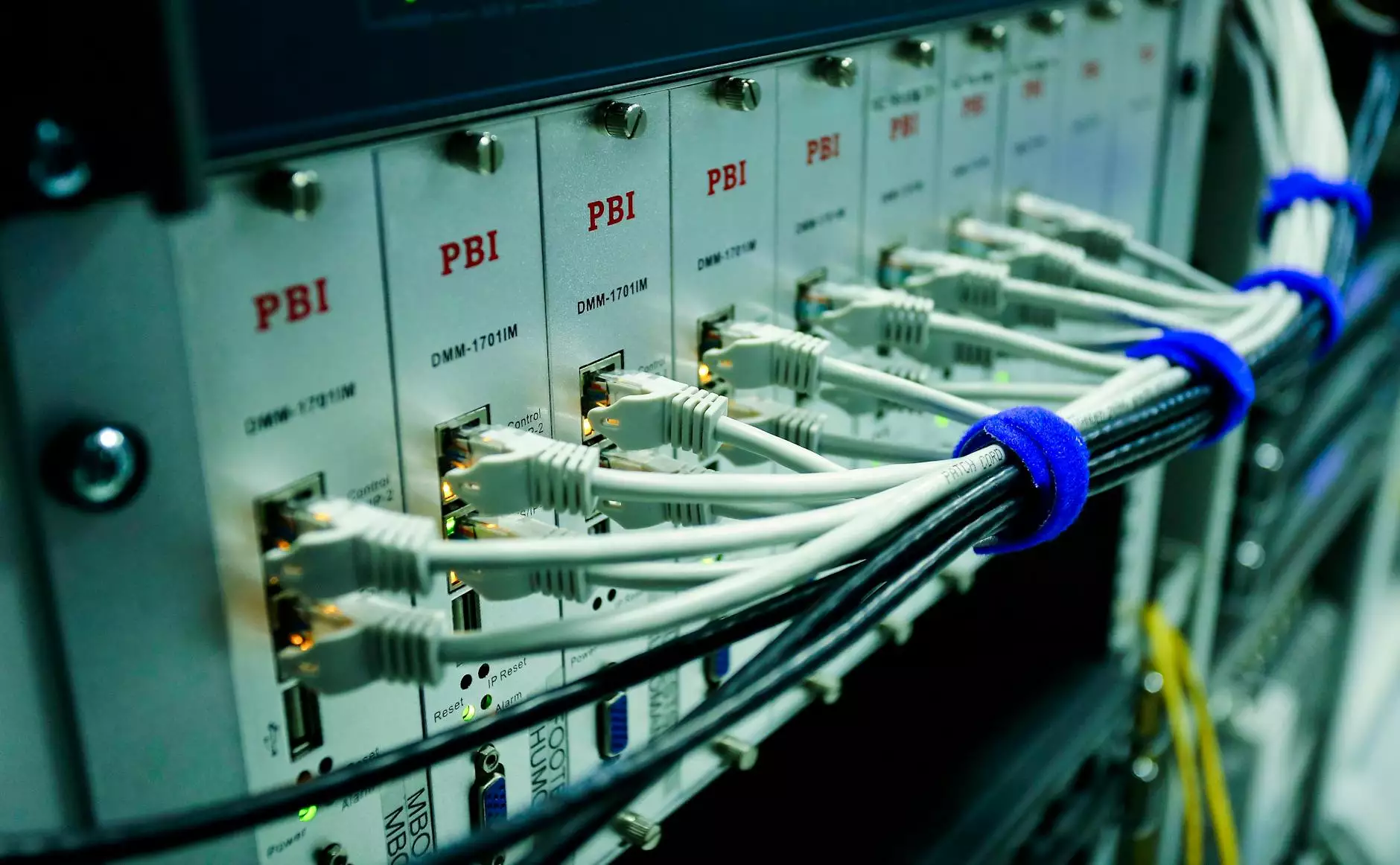Understanding Data Privacy Compliance for Your Business

In today's digital age, data privacy compliance has become a cornerstone of responsible business operations. With the increasing frequency of data breaches and the tightening of regulations, businesses need to prioritize data privacy as a fundamental aspect of their strategy. For companies like Data Sentinel, which operate in the realms of IT Services & Computer Repair and Data Recovery, adhering to data privacy laws is not just a legal obligation, but an opportunity to build trust with customers and enhance brand value.
What is Data Privacy Compliance?
At its core, data privacy compliance refers to the adherence to laws and regulations that govern the collection, use, and storage of personal information. These laws are designed to protect individuals' privacy rights and ensure that businesses handle personal data responsibly. Key regulatory frameworks include:
- General Data Protection Regulation (GDPR) - A comprehensive regulation in the EU that mandates strict data protection measures.
- California Consumer Privacy Act (CCPA) - A law that provides California residents with the right to know about and control how their personal information is used.
- Health Insurance Portability and Accountability Act (HIPAA) - Governs the privacy and security of health information in the United States.
- Personal Information Protection and Electronic Documents Act (PIPEDA) - Canada's federal privacy law for private-sector organizations.
The Importance of Data Privacy Compliance
Why is data privacy compliance so crucial for businesses today? Here are several compelling reasons:
1. Trust and Reputation
In an era where consumers are increasingly aware of their privacy rights, compliance fosters trust. When customers know that a company values their privacy, they are more likely to engage with and remain loyal to that business.
2. Mitigating Legal Risks
Failing to comply with data privacy regulations can lead to severe legal repercussions, including hefty fines and sanctions. For instance, non-compliance with the GDPR could result in fines up to 4% of annual global turnover. Thus, proactive compliance can save businesses from potential financial pitfalls.
3. Competitive Advantage
Establishing a robust data privacy framework can give businesses a competitive edge. Companies that clearly demonstrate their commitment to data privacy can differentiate themselves in a crowded marketplace.
4. Enhanced Data Security
Implementing data privacy measures often leads to improved data security practices. Investing in safer data handling and storage helps prevent data breaches and cyberattacks, protecting sensitive customer information from malicious actors.
Steps to Achieve Data Privacy Compliance
Achieving compliance is a multi-step process that requires strategy, investment, and ongoing effort. Here’s a detailed breakdown of the essential steps:
1. Conduct a Data Audit
Understanding what data your business collects, processes, and stores is paramount. A thorough data audit will help identify:
- The types of personal data collected.
- How data is used within the organization.
- Who has access to the data.
- Where and how data is stored and protected.
2. Update Privacy Policies
Your privacy policies should evolve to reflect compliance requirements accurately. Ensure that policies are clear, concise, and accessible to consumers. Critical components of a privacy policy should include:
- Data collection practices.
- Data usage information.
- Rights of the individuals whose data is collected.
- Data retention and deletion policies.
3. Implement Data Protection Measures
After understanding and documenting your data practices, the next step is to implement security controls. Some common measures include:
- Data Encryption: Encrypt sensitive data to ensure that it remains secure even in the event of a breach.
- Access Controls: Limit data access to authorized personnel only.
- Regular Security Training: Train employees on best practices for handling personal data.
- Incident Response Plan: Prepare a response plan in case of a data breach, including notification procedures.
4. Maintain Records
Keeping accurate records of data processing activities is essential for compliance audits. Maintaining detailed documentation can help demonstrate accountability and provide evidence of compliance.
5. Conduct Regular Compliance Reviews
Compliance is not a one-time effort. Regular reviews and audits should be conducted to ensure ongoing compliance with evolving regulations and changing business practices.
The Role of Data Sentinel in Data Privacy Compliance
As an industry leader in IT Services & Computer Repair and Data Recovery, Data Sentinel understands the complexities of data privacy compliance. Here’s how we can assist your business:
Expert Consultation
Our team of experienced consultants will work with you to evaluate your current data practices, provide recommendations for compliance, and assist in developing a tailored strategy that meets your specific needs.
Security Solutions
Implementing advanced security solutions is vital for protecting sensitive data. Data Sentinel offers a range of security services that include:
- Firewall Implementation: Protect your network from unauthorized access.
- Data Encryption Services: Secure data at rest and in transit.
- Regular Security Audits: Identify vulnerabilities and recommend enhancements.
- 24/7 Monitoring: Proactive systems monitoring to detect and respond to threats in real-time.
Data Recovery Services
Data breaches can happen despite your best efforts. Our data recovery services are designed to restore lost or compromised data efficiently and effectively, ensuring minimal disruption to your business.
The Future of Data Privacy Compliance
The landscape of data privacy continues to evolve. With advancements in technology, privacy laws are expected to become more stringent. Businesses must stay informed about new regulations and industry best practices to maintain compliance. Data privacy compliance will likely involve:
- Greater accountability for data usage.
- Increased emphasis on data ethics.
- Enhanced consumer rights regarding data access and deletion.
- Wider adoption of privacy by design in software development.
Conclusion
In conclusion, data privacy compliance is an indispensable component of modern business operations. Companies must navigate a complex regulatory environment while ensuring they protect their customers’ information. By prioritizing compliance, businesses not only safeguard themselves from legal issues but also foster trust and loyalty among their clientele. With the expert guidance of Data Sentinel, your company can effectively navigate these challenges, ensuring you meet compliance standards while maintaining a secure and efficient operation.
For more information on our IT services, computer repair, and how to improve your data privacy practices, visit us at data-sentinel.com.









